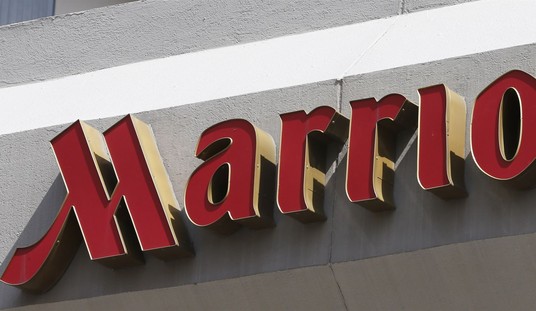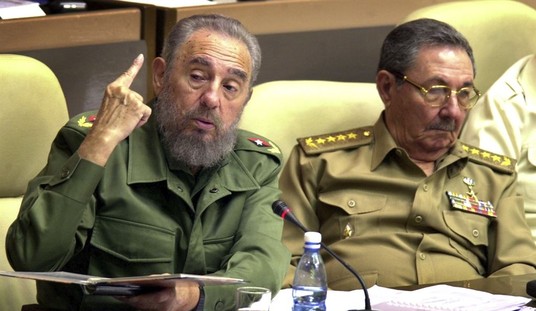Robert Gibbs, former White House press secretary to President Obama, recalled nearly quitting his job after being told the Pentagon wanted to ban him from Situation Room meetings on the war in Afghanistan.
Gibbs also said he was not able to acknowledge the U.S. had a drone program during his time as press secretary.
“I remember at the very beginning of the administration – I know it’s going to sound preposterous but, you know, one of the things was ‘don’t even acknowledge – forget drone strikes – don’t even acknowledge that there’s a program that does this.’ You’re new and you’re freaked out about saying something that’s classified,” said Gibbs at the National Archives’10th Annual McGowan Forum on Communications.
Other panelists at the event included former White House press secretaries Ron Nessen (Gerald Ford), Marlin Fitzwater (Ronald Reagan, George H.W. Bush) and Mike McCurry (Bill Clinton).
“Probably like the third day I was briefing, somebody asked me about a drone strike. I don’t have any information on that and I’m not going to get into it. It’s on the damn front page of the New York Times, right, because somebody has reported we’ve killed six people in a drone strike,” Gibbs said. “Yet, the press secretary to the president of the United States is not capable of acknowledging a program in which that even exists.”
Gibbs said he wishes he had said something about the drone program at the time.
“You can’t have somebody standing up there saying something like that while they’re reading the New York Times. It’s sort of preposterous,” he said.
During the Afghanistan review, Gibbs said the administration had about 12 or 13 mostly 3-hour Situation Room meetings to go “exhaustively” through the process.
“After the first meeting, Rahm [Emanuel], the chief of staff, came in my office and said the Pentagon does not want you in those meetings. They said they don’t want a political guy in the meetings – yeah, ever been to the Pentagon? I didn’t say a word,” he said. “I just reached over to my desk and I picked up my ID, because the one great things about being press secretary is all the Secret Service guys know you, you don’t have to wear your ID and I just picked it up and I said, ‘If that’s the case than take this and do tell me how it all works out.’”
“Are you serious? You were about to quit?” asked moderator Michel Martin of NPR. In response, Gibbs said he “absolutely” would have quit if he could not be in those meetings.
“You have way more information than you could ever say and particularly at a time – I mean, look, I’m sure there was then and there is now a safe in the office where you have to lock up classified documents,” Gibbs said. “You have to record when the safe gets open, record when the safe gets closed, there’s a lot that you get information on and I think if you have somebody who isn’t in a lot of that and can’t watch it and understand what you’re supposed to steer around then the whole job becomes sort of moot.”
McCurry said Clinton sometimes stopped meetings if he was not in attendance.
“The president has to protect that role of the press secretary to be there and to know what’s going on and to take it all in, and I had the same experience,” he said.
“President Clinton would stop meetings and say, ‘Get old Mike McCurry in here because the press is going to be on him on this and I want him to hear what we’re talking about’ – and he would literally stop meetings and make me come to the meeting so that I would actually see what their conversation was about. And a president who doesn’t respect that role is going to screw up the relationship that’s important,” McCurry added.
Nessen said Ford made it clear that he could sit in on any meeting, even though Henry Kissinger was sometimes not too happy about it.
“Kissinger was a little bit more of a problem but I think that’s one of the most important things you can do to make sure you’re getting all the most important facts to pass onto the press,” he said.
Gibbs also said his best day in the White House was when President Obama signed the healthcare reform law.
“I think our best day was probably signing healthcare. I just think the sense of accomplishment and euphoria of walking into the East Room and having the president sign that and now you have people come up to you and say, ‘I had a condition for 15 years, I could never get healthcare. Thank you for being a part of something like that,’” Gibbs said.
The Affordable Care Act, signed into law in 2010, remains a controversial issue. Many of the Republicans who won Senate seats held by Democrats in the midterm elections campaigned on repealing Obamacare. Republicans will control the House and Senate in the next Congress.
“On healthcare, there are certainly some lines I’m going to draw. Repeal of the law I won’t sign. Efforts that would take away healthcare from the 10 million people who now have it and the millions more who are eligible to get it, we’re not going to support,” Obama said on Nov. 5.









Join the conversation as a VIP Member